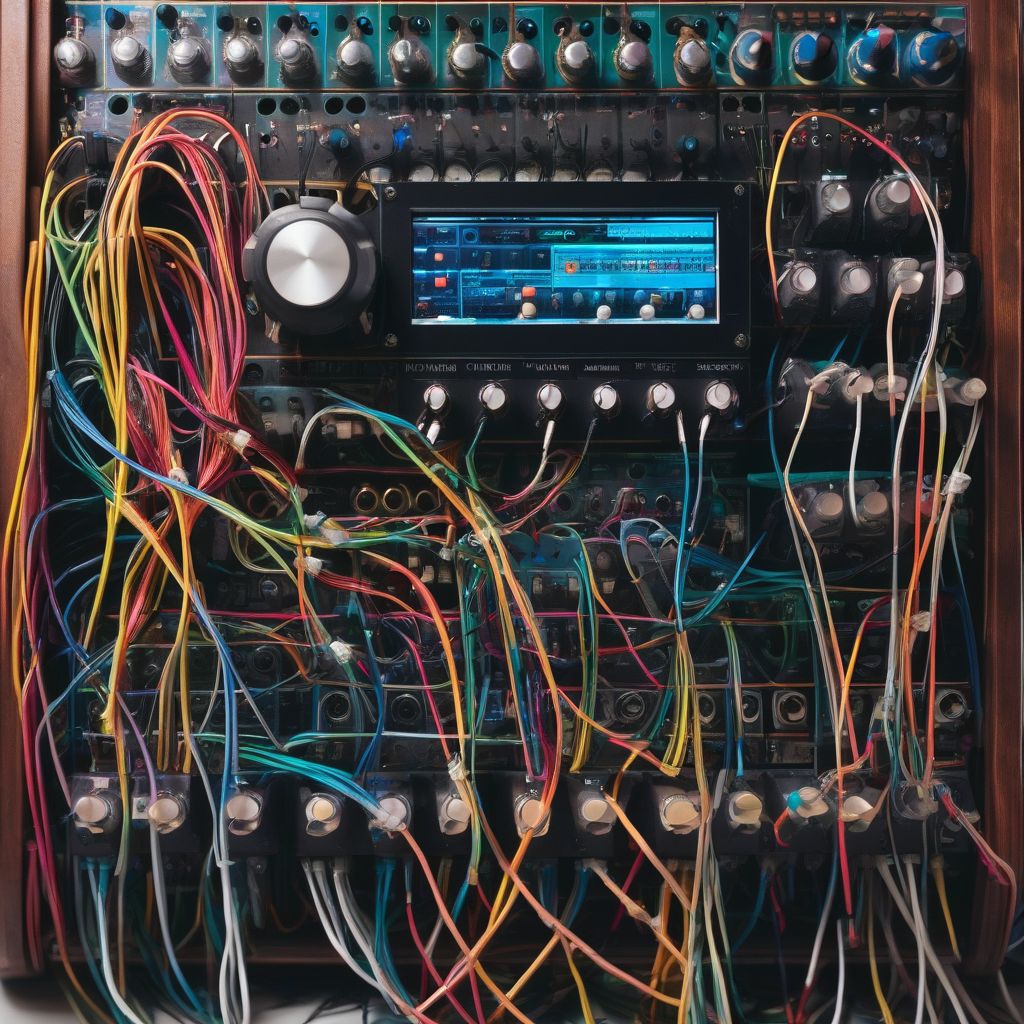Remember that feeling of hearing a sound so unique, so powerful that it sent shivers down your spine? That, my friends, is often the magic of hardware synthesizers. While the digital realm has undoubtedly revolutionized music production, there’s a growing movement embracing the warm, organic, and sometimes unpredictable nature of hardware synthesizers. So, let’s dive into the world of analog (and analog-inspired) synths and discover why they’re making a powerful comeback.
Why Hardware When Software Seems Simpler?
It’s true, software synths offer convenience, affordability, and a vast library of sounds at your fingertips. However, hardware synthesizers bring something unique to the table:
1. A Hands-On, Intuitive Approach
Imagine turning knobs, sliding faders, and patching cables to sculpt your sound. Hardware synths provide a tactile experience that many producers find more engaging and creatively inspiring than clicking through menus on a screen. This hands-on approach often leads to happy accidents and unexpected sonic textures, fueling experimentation and pushing creative boundaries.
2. The Allure of Analog Warmth
Many argue that hardware synths, particularly those with analog circuits, possess a warmth and depth that’s challenging to replicate digitally. This characteristic “analog warmth” is often attributed to subtle imperfections in the circuitry, creating a pleasing, organic sound that sits beautifully in a mix.
3. Uniqueness and Character
Each hardware synthesizer has its own sonic personality, shaped by its design, components, and even quirks. This individuality allows producers to craft signature sounds that stand out from the crowd, adding a unique flavor to their music.
 Modular Synthesizer
Modular Synthesizer
The Benefits of Hardware Synthesizers in Modern Production
1. Injecting Life and Energy into Your Tracks
Hardware synths can breathe life into your music. Whether it’s the subtle imperfections of an analog oscillator or the dynamic response of a filter, these instruments add a level of organic movement and unpredictability that can make your tracks groove harder and feel more alive.
2. Expanding Your Sonic Palette
From vintage monophonic behemoths to modern hybrid designs, hardware synthesizers offer a vast sonic landscape to explore. Expand your sonic palette with gritty basses, soaring leads, evolving textures, and otherworldly soundscapes that defy categorization.
3. Inspiring Creativity and Experimentation
The hands-on nature and immediate feedback of hardware synths encourage experimentation and can spark new ideas. The process of tweaking knobs and moving faders becomes an interactive journey of sonic discovery, often leading to unexpected and inspiring results.
Choosing the Right Hardware Synthesizer
The world of hardware synths is vast and varied. Here’s a quick guide to help you navigate:
- Analog Synthesizers: Known for their warm, organic sound, these use analog circuits to generate and process audio signals.
- Digital Synthesizers: Offering precise control and a wide range of sounds, these use digital signal processing (DSP) to create their sounds.
- Hybrid Synthesizers: Combining the best of both worlds, these often use analog signal paths with digital control or effects.
[amazon bestseller=”synthesizer”]
Your choice depends on your budget, workflow, and desired sonic aesthetic. Research different brands and models, listen to demos, and, if possible, try out synths in person to find the perfect fit for your setup.
Integrating Hardware into Your Digital Studio
Modern music production often blends hardware and software seamlessly. Here are a few tips for incorporating your synths into a digital workflow:
- Audio Interface: Connect your synth to your computer using an audio interface with enough inputs and outputs.
- MIDI Controller: Use a MIDI keyboard or controller to play and sequence your hardware synth from your DAW.
- DAW Integration: Explore your DAW’s external instrument routing options to record audio from and send MIDI to your synth.
Conclusion: Embrace the Sound of Creativity
Hardware synthesizers offer a unique and rewarding approach to music creation. They bring warmth, character, and a hands-on experience that can inspire and elevate your productions. Whether you’re a seasoned producer or just starting, exploring the world of hardware synths can open up a universe of sonic possibilities.
What are your experiences with hardware synths? Share your thoughts and favorite instruments in the comments below!
